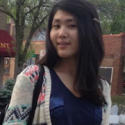Internet users had a better handle on politics in 2004, study finds
As candidates and pundits look to the Internet in the 2008 presidential campaign, a University of Wisconsin–Madison study shows that Web users during the last election cycle had a more thorough understanding of presidential politics than users of other media.
"We did not find significant links between television news use and factual knowledge, but we did find significant links from both print and online use to factual knowledge in 2004," says the study by graduate student Kajsa Dalrymple and Dietram Scheufele, a UW–Madison journalism professor.
More importantly, however, online newspapers were the only medium that had significant effects on integrated knowledge – the ability of readers to "connect the dots" by combining bits and pieces of knowledge into a meaningful understanding of politics.
"Our findings suggest that interested citizens are increasingly turning to online sources to develop a more in-depth understanding of candidates and issues, and that online newspapers may in fact be superior to print newspapers in promoting such an in-depth understanding, given their hyper-linked mode of presentation and their ability to link to outside sources," the research found.
The study, to be published in the July issue of the Harvard International Journal of Press/Politics, found that the Internet had positive and significant effects on all measures of knowledge, even after controlling for other media use.
Dalrymple’s study used data from the 2004 American National Election Study, which interviewed more than 1,000 citizens before and after the election. She says the Internet is playing an increasingly important role in campaigns and in building a knowledge base for voters.
"The Internet is going to prove to be a medium where people are learning more about candidates and understanding why they may be important in the next presidential election cycle," she says. "It’s a matter of understanding politics and not just breezing through headlines."
There are also messages for newspaper publishers and editors in the study, she says.
"Newspapers are still helping people learn, and they may be prompting people to seek out more information from the Internet," Dalrymple says. "Online newspapers are being read and are giving people a better understanding of politics. I would never suggest that newspapers are out of style, because that’s where people are getting a base of political knowledge and from there many turn to the Internet. It will be interesting to see how online newspapers will compete in the future."

